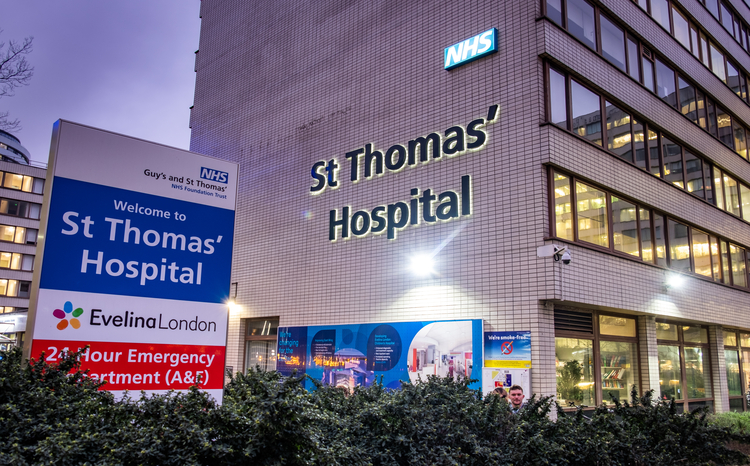Implementation schedule slips in South
- 14 March 2006
The introduction of the NHS Care Records Service in the South of England is set to be delayed following a revamp of the software to introduce new functionality and to address issues identified in the "white knuckle" initial implementation at Nuffield Orthopaedic Centre, Oxford.
E-Health insider has learned from well placed sources that the next implementation of the Cerner Millennium CRS solution is now scheduled for May at Bath Hospital NHS Trust, almost two months later than had been envisaged in December.
Sources indicate that the delay is largely due to trusts requiring new functionality in Cerner Millennium that had not been originally planned. Early adopter trusts in the South had originally signed up to receive the same version of Millennium that Cerner had already installed at Newham and Homerton in London. This system, installed outside the national programme, was known as release 0.
However, Fujitsu has since had to provide additional functionality on new clinical codes and around booking not present in release 0. This extra work has taken additional time not originally planned for and as a result Fujitsu is no longer implementing the release 0 of Millennium as originally planned.
This additional work is understood to address issues around incorporating new clinical codes and the Choose and Book functionality. One trust IT director in the South told EHI: "In particular the functionality of the current version does not support Choose and Book requirements, does not allow trusts to be both a provider and a commissioner of services".
One senior source close to the programme in the South said that the delays were not due to problems arising from the Nuffield Orthopaedic Centre (NOC), which they acknowledged had been a "white knuckle ride".
A leading clinician familiar with the issues involved told EHI: "Whilst I totally support the NPfIT vision, the unrealistic timescales, the lack of local funding, the ongoing problems with delivery, the lack of openess so that lessons can be learnt, the spin and the blame culture are in danger or killing the programme."
According to a report in Computer Weekly today the NOC has experienced problems with disappearing patient records, leading the trust to file a "serious untoward incident" report with the National Patient Safety Agency. Leaked board papers from the trust speak of serious disruption caused by the rushed implementation of the system to meet a December deadline.
The installation of CRS at Nuffield was reported to have caused "major operational difficulties" including a backlog of appointments and an inability to produce both internal and statutory reports including waiting lists and cancellations.
The clinician told EHI that the reported problem of ‘lost patients’ was caused during the data migration process from the old system to the new. "The data migrated, but became orphaned from certain parts of the new system – e.g. patient appointments did not get linked to clinic schedules." The same problem meant the NOC was unable to propoerly report waiting times.
EHI has also been told, however, that these problems represented a "snapshot of the situation in December" during the middle of the system implementation and that "no patient records were actually lost".
The source instead attributed the problems at NOC to problems with data migration, including "transferring across dirty data", "users of the system not initially using it properly", and "issues with the appointments system". Lessons learned from the NOC implementation were said to include the need for "much more user training", and "not doing the implementation so quickly".
The NOC faced an urgent requirement for a new patient administration system, with its current system due to expire in February. But EHI understands that Fujitsu was also under huge pressure from Connecting for Health to deliver an initial implementation by the end of December.
South Norfolk MP Richard Bacon has asked the National Audit Office to include an investigation of the problems at NOC as part of its report into the NHS National Programme for IT. He said in an interview with Radio 4’s Today programme: ”Connecting for Health has many of the hallmarks of a classic IT fiasco. It is being foisted on clinicians with no proper consultation and there is over-rapid implementation without proper testing.”
CfH said in a press statement: "The Nuffield Orthopaedic Centre had an urgent need to replace an obsolete and overloaded IT system. In response to the need, NHS Connecting for Health, working with NOC, installed a new hospital-wide system within some twelve weeks of signing the contract with suppliers.
The DH agency added the implementation had resulted in some issues which, "regrettably, caused inconvenience to patients and staff though there has been no adverse impact on patient safety".
CfH also said in its statement that "Reporting a serious untoward incident does not mean individual patients were at risk, it was a general alert in line with proper NHS process." It added that "Intensive work by all parties has already resolved the vast majority of issues raised and we fully expect the remaining small number of concerns to be resolved in the near future."
The trust had been due to replace the old system in 2004 but this procurement was halted with the advent of the NPfIT. Further delays occurred in June 2005 when Fujitsu, the LSP for the South, switched supplier from IDX to Cerner. Fujitsu won an £896m contract in January 2004 as part of the £6.2bn worth of contracts awarded under the NPfIT.
CfH said that there will be "In the coming year there will be more than 20 such installations in the NHS CfH Southern Cluster".




